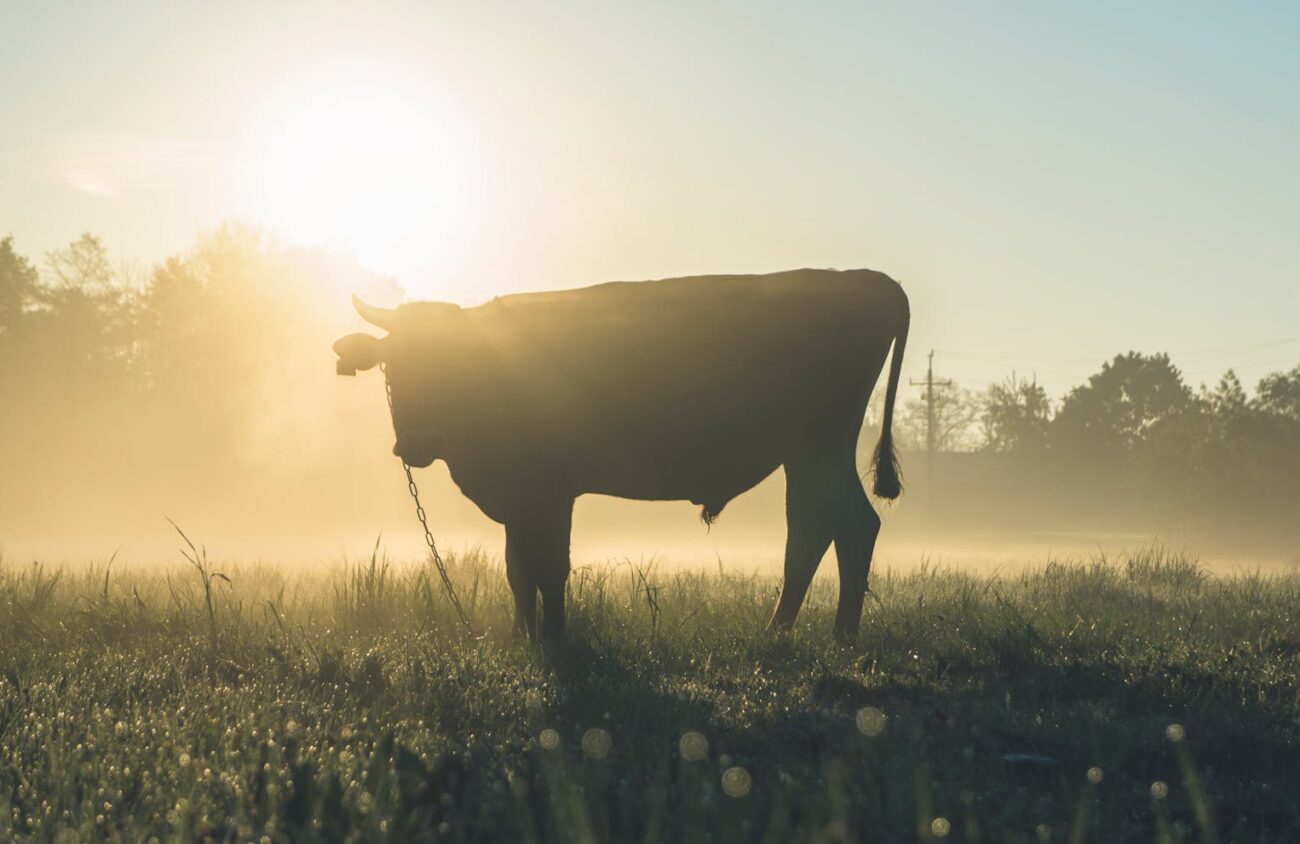“Carbon-neutral beef” is the kind of oxymoron that makes any environmentally conscious consumer scratch their head.
But Austin Allred, owner of Washington-based Royal Ranch, says that carbon-neutral beef is not only possible, it’s the future.
Royal Ranch’s beef program produces carbon with emissions from diesel tractors and the cow’s methane, but it is able to offset those emissions by creating a farm that sustains itself through carbon sequestration — harnessing carbon back into the soil — to create an ecosystem at Allred’s ranch that ends up reusing carbon.
In an effort to bring a more sustainable meat option to customers, Market of Choice announced in February that it has partnered with Royal Ranch to bring carbon-neutral beef to the tables of environmentally conscious omnivores.
Allred grew up farming in Royal City, Washington. “We go back three generations,” Allred says. “I got my kids helping on the ranch now day in and day out. They’re just learning how to do it more sustainably now.”
According to the University of California, Davis, “Cattle are the No. 1 agricultural source of greenhouse gases worldwide. Each year, a single cow will belch about 220 pounds of methane.”
Alice Morrison, co-director of Friends of Family Farmers, a nonprofit supporting small farms in Oregon, says that while carbon-neutral ranching is possible on a large scale, there are limitations. She says, “In order for a large-scale operation to do things that align with carbon neutral goals, they need to have a lot of land and ensure that they can maintain necessary carbon sequestration processes.”
Allred says regenerative agriculture could be the solution to eliminating greenhouse gases while still consuming meat. Royal Ranch practices regenerative agriculture in a few different ways.
Manure management is what Allred calls a “low-hanging fruit” in terms of sustainability practices. Royal Ranch puts manure from its cattle back into the soil. The ranch also uses recycled water to hydrate its orchard, field and dairy crops.
There are also more worms on Royal Ranch than cattle, which isn’t all that strange if you’re looking to run a carbon-neutral operation. Royal Ranch hosts what it says is the largest worm farm in the world with 15 acres of long, skinny swimming pools filled with worms and recycled wood chips. Allred says that these worms make for healthier soil and are a big part of the regenerative process because they can harvest the wood chips, compost them, and eventually put them back into the soil. Allred also uses the worms’ digestive systems to remove 99 percent of water contaminants in wastewater, which then gets reused for farming.
Regenerative agriculture isn’t cheap. Allred says, “You don’t install the largest worm farm in the world without putting up some cash.” He says that selling carbon credits — permits that companies can sell to another company that allows them to produce a set amount of carbon emissions — to big-name companies like Microsoft has helped him continue to offset the costs of installing the type of machinery.
Morrison of Friends of Family Farmers is skeptical of carbon credits because she would prefer that “people doing unsustainable things should just stop doing those things.” However, she says she understands that farming is not particularly lucrative so she doesn’t fault farmers for wanting to seek other revenues.
“I think the important piece of Royal Ranch and what they’re doing is really the scale,” says Market of Choice Senior Director of Perishable Merchandising Matt Martin. “How they’ve been able to have this impact on such a large scale.”
In addition to managing 5,000 cows, Royal Ranch’s 14,000-acre farm produces six crops: apples, cherries, potatoes, peas, sweet corn, field corn, hay and wheat.
“We feel an obligation to feed the world,” Allred says. “Or at least feed our local communities.”
